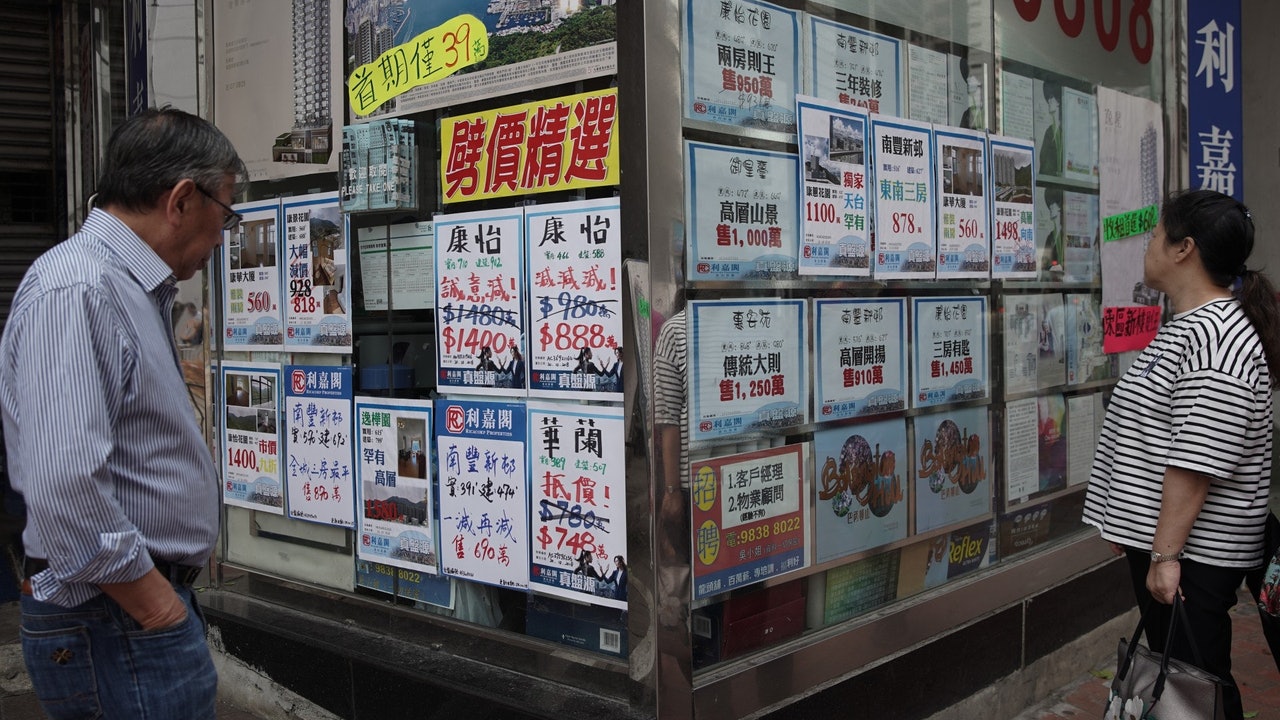Social News
Written by: Wang Jieen
2021-03-01 19:00
The last update date: 2021-03-01 19:03
The Legislative Council Secretariat today (1st) published a research report on "The Impact of Home Ownership on Hong Kong’s Social Economy" and found that Hong Kong property prices have soared by 391% within 15 years, or nearly four times, but the median monthly household income in the same period Only an increase of 78%.
The home ownership ratio dropped to 49.8% in 2019, a 20-year low.
Although the ratio rebounded slightly to 51.2% in late 2020, it is still far below the 60% level of affluent economies.
The report also mentioned that the age of homeowners is biased towards older persons, and the average age of first-time home buyers has been postponed to 44 in 2019.
The proportion of young people under the age of 35 in the overall homeownership has shrunk from 22.1% in 1997 to 7.6% in 2019, raising concerns about whether social mobility has slowed down.
The Legislative Council Secretariat published a research brief on "The Impact of Home Ownership on Hong Kong's Social Economy" and found that Hong Kong property prices have soared by 391% within 15 years.
(Profile picture)
The ratio of home ownership with ample supply of units hit a new high in 2004
The study described that in the past 23 years, the home ownership ratio in Hong Kong has developed in an "inverted U-shaped" shape.
The report explained that in July 1997, the government made major commitments on housing policies, such as the provision of no less than 85,000 residential units per year, the launch of the "Tenancy Scheme", and the Asian financial turmoil to provide home ownership opportunities.
With ample supply of units, the ratio continued to rise to a peak of 54.3% in 2004.
Suspend the development of new land, property prices rebounded by 133% before 2011
As for the year before 2011, the ratio remained at about 53%.
The research report explains that in November 2002, the government tightened the supply of land and housing, including the suspension of land auctions, the indefinite suspension of construction of subsidized-sale houses and the cessation of rental purchases.
Therefore, between 2005 and 2011, the supply of new land dropped by more than 85%, total housing completions plummeted by 57%, and property prices rebounded sharply by 133%. However, since the vacant units in the early years can still absorb users stably, Therefore, the home ownership ratio can still maintain a high level of 53%.
Home ownership ratio hits 20-year low
The report also pointed out that although the government later increased housing supply, such as relaunching HOS housing, establishing land reserves, and setting up a land supply task force, it described these measures as still insufficient to meet demand. Both the development of new land and the construction of buildings are very long. , It also refers to the negative impact of the suspension of the development of new land, which has not subsided so far.
From 2011 to 2019, the total housing supply was only an average of 29,500 units per year, while property prices doubled again by 110%. The home ownership rate dropped to 49.8% in 2019, a 20-year low. The number of residential households only increased by 45,700.
The research report pointed out that the average age of first home buyers has been postponed to 44 in 2019.
(Information Picture/Photo by Liang Pengwei)
Young heads of households reduced by less than 8%
The study also found that young heads of households under the age of 35 accounted for 22.1% of the total homeowners in 1997, but fell sharply by two-thirds to only 7.6% in 2019.
The average age of first home buyers has been postponed to 44 in 2019.
According to the report, it is difficult for young people to keep up with rising property prices and to compete with other buyers in the property market based on their work income alone.
On the contrary, the number of elderly household heads aged 60 and above living in their own homes doubled from 192,100 to 536,000 between 1997 and 2019, and the proportion of all self-owned households also doubled from 21.4% to 41.2%.
During the period from 2009 to 2019, most of the net increase in ownership of private residential units was held by investors and leased to tenants instead of self-occupation.
66% of landlords have paid off their mortgage loans
The study also found that local property owners are financially sound, and 66% of homeowners have repaid their mortgage loans in 2016.
They have strong purchasing power to purchase units, which can be used as second homes, for their children, or for investment purposes, which affects the distribution of wealth across generations.
Subdivided rent management | Transportation and Housing Bureau: Will add clauses to protect the rights of the owners or terminate the lease early
Budget | 1 billion yuan to help old buildings repair drainage management grassroots organizations approve the difficulty in eradicating the chaos of sub-houses and drainage management
Budget 2021|The Public Housing Association advocates subsidizing the electricity bills of subdivided households to purchase converted industrial buildings
New crown pneumonia | Mandatory testing of 4 buildings added, 2 buildings have sub-divided rooms in Hua Yuan Building, Yau Tsim Mong
01News
Long-term housing supply in the property market







